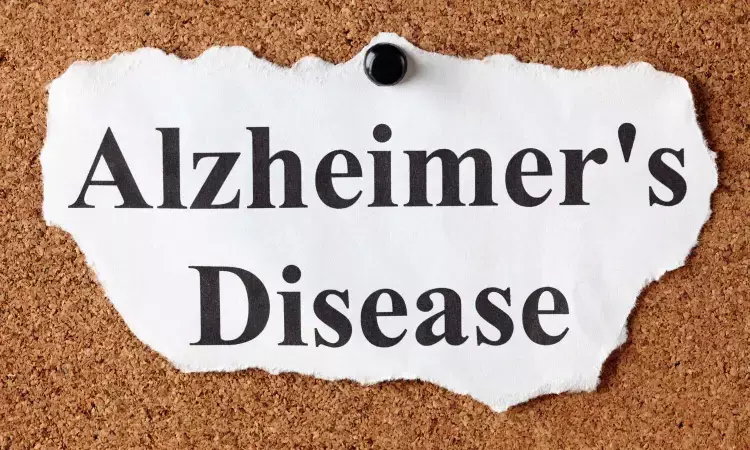- Home
- Medical news & Guidelines
- Anesthesiology
- Cardiology and CTVS
- Critical Care
- Dentistry
- Dermatology
- Diabetes and Endocrinology
- ENT
- Gastroenterology
- Medicine
- Nephrology
- Neurology
- Obstretics-Gynaecology
- Oncology
- Ophthalmology
- Orthopaedics
- Pediatrics-Neonatology
- Psychiatry
- Pulmonology
- Radiology
- Surgery
- Urology
- Laboratory Medicine
- Diet
- Nursing
- Paramedical
- Physiotherapy
- Health news
- Fact Check
- Bone Health Fact Check
- Brain Health Fact Check
- Cancer Related Fact Check
- Child Care Fact Check
- Dental and oral health fact check
- Diabetes and metabolic health fact check
- Diet and Nutrition Fact Check
- Eye and ENT Care Fact Check
- Fitness fact check
- Gut health fact check
- Heart health fact check
- Kidney health fact check
- Medical education fact check
- Men's health fact check
- Respiratory fact check
- Skin and hair care fact check
- Vaccine and Immunization fact check
- Women's health fact check
- AYUSH
- State News
- Andaman and Nicobar Islands
- Andhra Pradesh
- Arunachal Pradesh
- Assam
- Bihar
- Chandigarh
- Chattisgarh
- Dadra and Nagar Haveli
- Daman and Diu
- Delhi
- Goa
- Gujarat
- Haryana
- Himachal Pradesh
- Jammu & Kashmir
- Jharkhand
- Karnataka
- Kerala
- Ladakh
- Lakshadweep
- Madhya Pradesh
- Maharashtra
- Manipur
- Meghalaya
- Mizoram
- Nagaland
- Odisha
- Puducherry
- Punjab
- Rajasthan
- Sikkim
- Tamil Nadu
- Telangana
- Tripura
- Uttar Pradesh
- Uttrakhand
- West Bengal
- Medical Education
- Industry
High HDL C and systolic BP linked To Alzheimer's Disease Susceptibility: JAMA

A recent genetic association study published inJAMA Open Network has shed light on previously unrecognised connections between modifiable risk factors and the development of Alzheimer's disease (AD). The research, conducted using comprehensive data and advanced statistical methods, aims to identify potential drug targets and improve prevention strategies for this debilitating condition. The findings open up new avenues for interventions that could significantly reduce the burden of AD.
To investigate the genetic associations between modifiable risk factors and Alzheimer's disease (AD), a comprehensive genetic association study was conducted by Ruth Frikke-Schmidt MD, DMSc, PhD, Department of Clinical Biochemistry, Copenhagen University using a 2-sample univariable and multivariable mendelian randomization approach. Independent genetic variants linked to modifiable risk factors were selected as instrumental variables from genomic consortia. The study utilized outcome data for AD obtained from the European Alzheimer & Dementia Biobank (EADB), which was generated on August 31, 2021. The main analyses focused on the EADB clinically diagnosed end point data. All data analyses were carried out between April 12 and October 27, 2022.
The key findings of the study were:
● The study included a cohort of 39,106 participants clinically diagnosed with Alzheimer's disease (AD) and 401,577 control participants without AD from the EADB.
● The age range of participants with AD was between 72 and 83 years, while for control participants, it was between 51 and 80 years.
● Among individuals with AD, 54% to 75% were female, and among the control group, 48% to 60% were female.
● The analysis revealed that genetically determined high-density lipoprotein (HDL) cholesterol concentrations were associated with increased odds of AD, with an odds ratio (OR) of 1.10 per 1-standard deviation (SD) increase.
● Genetically determined high systolic blood pressure was found to be associated with an increased risk of AD, even after adjusting for diastolic blood pressure, with an OR of 1.22 per 10-mm Hg increase.
● To reduce potential bias due to sample overlap, a second analysis excluded the entire UK Biobank from the EADB consortium.
● This analysis yielded similar results, indicating that HDL cholesterol remained associated with increased odds of AD (OR per 1-SD unit increase: 1.08 [95% CI, 1.02-1.15]), as did systolic blood pressure after adjusting for diastolic blood pressure (OR per 10-mm Hg increase: 1.23 [95% CI, 1.01-1.50]).
These findings suggest a significant genetic association between high HDL cholesterol concentrations and high systolic blood pressure with an elevated risk of AD. The results contribute to our understanding of modifiable risk factors for AD and may guide the development of targeted interventions for prevention and treatment.
This genetic association study has illuminated the previously unknown connections between modifiable risk factors and the development of Alzheimer's disease. The identification of genetic associations between high HDL cholesterol concentrations and elevated systolic blood pressure with increased odds of AD offers new avenues for drug targeting and prevention implementation. These findings hold promise for advancing personalised treatment approaches and improving the prevention and management of Alzheimer's disease, potentially leading to better outcomes for individuals at risk.
Reference:
European Alzheimer’s & Dementia Biobank Mendelian Randomization (EADB-MR) Collaboration, Luo, J., Thomassen, J. Q., Bellenguez, C., Grenier-Boley, B., de Rojas, I., Castillo, A., Parveen, K., Küçükali, F., Nicolas, A., Peters, O., Schneider, A., Dichgans, M., Rujescu, D., Scherbaum, N., Jürgen, D., Riedel-Heller, S., Hausner, L., Porcel, L. M., ... Frikke-Schmidt, R. (2023). Genetic associations between modifiable risk factors and Alzheimer disease. JAMA Network Open, 6(5), e2313734. https://doi.org/10.1001/jamanetworkopen.2023.13734
Dr Kamal Kant Kohli-MBBS, DTCD- a chest specialist with more than 30 years of practice and a flair for writing clinical articles, Dr Kamal Kant Kohli joined Medical Dialogues as a Chief Editor of Medical News. Besides writing articles, as an editor, he proofreads and verifies all the medical content published on Medical Dialogues including those coming from journals, studies,medical conferences,guidelines etc. Email: drkohli@medicaldialogues.in. Contact no. 011-43720751


